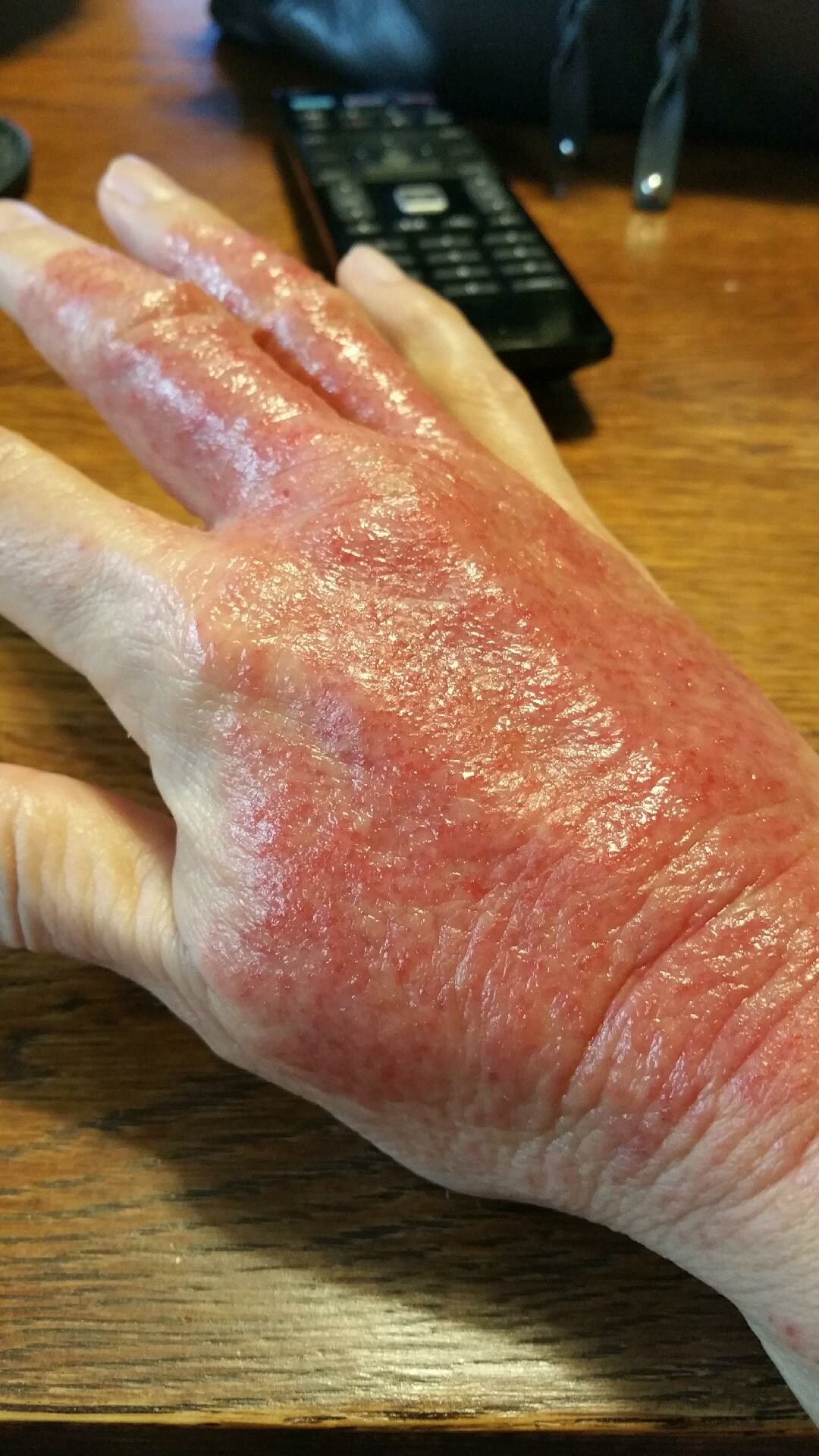
Histamine is normally produced by your body. In normal amounts it helps with circulation, focus, digestion. It serves as a warning sign when something "not normal" happens to your body such as redness and swelling when stung by a bee. Or, when your eyes are itchy and watery and your nose is running because there is pollen in the air. In fact, it is actually involved in most functions of your body from breathing, to hormones, to your brain and even anxiety. These are all "normal" histamine responses. So, what causes an "overabundance" of histamine to be produced causing "histamine intolerance"?
Root Causes of Histamine Intolerance
- Food
- Bacteria on food can produce and release histamine
- Some foods cause the body to release histamine in response
- Food allergies (IgE)
- Environmental Allergies
- Pollen > "Hay Fever" or "Seasonal Allergies"
- MCS (Multiple Chemical Sensitivities)
- DAO (diamine oxidase) Deficiency
- Enzyme produced by "healthy gut cells"
- Breaks down histamine in the small intestine
- Cofactors (helpers) that activate the DAO enzyme are deficient (Iron, B6, B12, Copper, Vit C, Omega-3 fats)
- Heavy menstrual cycles, fibroids, endometriosis may be causing iron deficient
- Hemorrhoids, Ulcers, H.pylori infection, proton pump inhibitors, birth control pills can cause deficiencies of B6, B12 and Vit C
- Copper > taking more than 60mg of zinc daily for longer than 6 months may cause a copper deficiency
- Alcohol and certain medication will block DAO production
- Thyroid Imbalances including Hashimoto's
- Histamine intolerance and Hashimoto's thyroiditis share the same root causes:
- Gluten sensitivity
- Leaky Gut
- SIBO
- IgE allergies > impaired ability to break down histamine in the digestive system
- Histamine intolerance and Hashimoto's thyroiditis share the same root causes:
- Hormone Imbalance
- Estrogen dominance = high histamine
- Mast cells store and produce histamines and also have "estrogen" receptor sites
- Can cause the production and release of histamine
- Decreases DAO levels
- Progesterone deficiency
- Cannot be produced in the body after menopause like estrogen
- Contributes to thyroid imbalances
- Estrogen dominance = high histamine
How To Manage Histamine Levels
- Avoid known food allergies (IgE) and high-histamine foods
- Use a high-quality air purifier with a HEPA filter for those high pollen seasons or to remove other chemicals and air pollutants
- Natural Antihistamines (histamine blockers)
- Essential Oils
- Lavender, Lemon, Peppermint (best combo)
- Clove
- Eucalyptus
- Ginger
- RC Blend
- Roman Chamomile
- German Chamomile
- Thieves Blend
- Thyme
- Quercitin
- Calms inflammation
- blocks the release of histamine from mast cells and stabilizes them
- strong antioxidant activity
- immune support
- Turmeric
- Vitamin C
- Increase the consumption of Vitamin C rich foods: tropical fruits, citrus fruits, broccoli, cauliflower and berries
- Stinging Nettles Leaf Extract
- Helpful for inflammatory activities that affect respiratory health
- sinus infections
- sinus pressure
- hastamine-induced asthma
- Helpful for inflammatory activities that affect respiratory health
- Essential Oils
- Use a probiotic with low-histamine producing strains
- DAO Supplementation
- Breaks down food-derived histamine in the digestive tract
- Green Tea
- Anti-inflammatory
- Mast cell stabilizer: prevents from rupturing and releasing all of the inflammatory chemicals
- Progesterone
- Naturally lowers histamine levels
- Enzymes
- Allerzyme specificially formulated with anti-histamine properties to help lower the histamine level and to combat allergies
Continuing to take in high-histamine foods, known allergy foods and environmental allergens will only maintain your histamine level on high alert and contribute to a weakened gut microbiome. If your gut isn't healthy, most likely you will continue to have increased allergic reactions and develop elevated histamine levels.
Since 80% of your immune system in in your gut, having a strong gut lining and diverse gut microbiome is essential for a healthy immune response. Repeated allergic responses and elevated histamine levels will only serve to damage your intestinal lining further.
You can find most of the suggested products to reduce histamine levels here.
If you are needing some direction on how to get started in healing your gut, my "Gut-Healing Course" would be a good place to start.
References:
https://thyroidpharmacist.com/articles/histamine-and-hashimotos/?fbclid=IwAR3ZO-Erqowyu1yU0v816ZlY_fzIN6Ywvphh5sqofgHa7zTMQcjDWq3Ine8
https://thyroidpharmacist.com/articles/histamine-and-hashimotos/?fbclid=IwAR3ZO-Erqowyu1yU0v816ZlY_fzIN6Ywvphh5sqofgHa7zTMQcjDWq3Ine8
https://www.factvsfitness.com/blogs/news/probiotics-histamine-intolerance/
https://www.urologyofva.net/articles/category/healthy-living/3673013/10/22/2019/8-natural-ways-to-lower-histamine
https://www.hackensackmeridianhealth.org/HealthU/2018/06/26/essential-oils-for-seasonal-allergies/
https://organicajane.com/got-alleriges/
https://dr-lobisco.com/essential-oils-for-respiratory-health-and-allergy-symptom-relief/
https://healinghistamine.com/blog/histamine-inflammation-links-electromagnetic-multiple-chemical-sensitivity/
https://www.mdcustomrx.com/docs/10319_menopause-news.pdf







